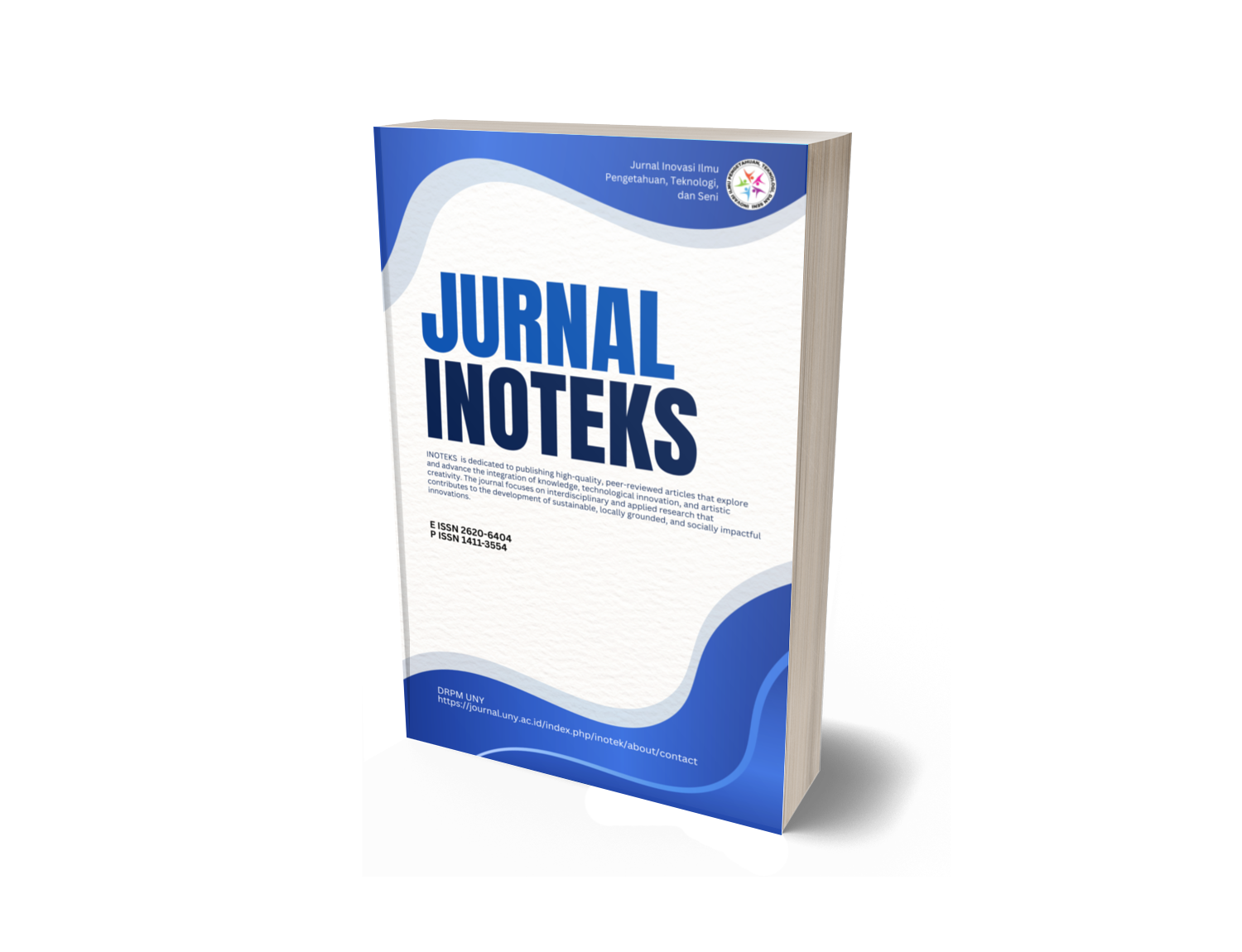Dampak implementasi Massive Open Online Course (MOOC) di berbagai negara
DOI:
https://doi.org/10.21831/ino.v1i1.57640Keywords:
MOOC, Dampak MOOC, Kajian LiteraturAbstract
References
Dai, H. M., Teo, T., & Rappa, N. A. (2020). Understanding continuance intention among MOOC participants: The role of habit and MOOC performance. Computers in Human Behavior, 112, 106455. https://doi.org/10.1016/j.chb.2020.106455
Gong, J., Liu, T. X., & Tang, J. (2021). How monetary incentives improve outcomes in MOOCs: Evidence from a field experiment. Journal of Economic Behavior and Organization, 190, 905–921. https://doi.org/10.1016/j.jebo.2021.06.029
Ismail, M. E., Utami, P., Ismail, I. M., Hamzah, N., & Harun, H. (2018). Development of Massive Open Online Course (MOOC) based on addie model for catering courses. Jurnal Pendidikan Vokasi, 8(2), 184. https://doi.org/10.21831/jpv.v8i2.19828
Joo, Y. J., So, H. J., & Kim, N. H. (2018). Examination of relationships among students' self-determination, technology acceptance, satisfaction, and continuance intention to use K-MOOCs. Computers and Education, 122, 260–272. https://doi.org/10.1016/j.compedu.2018.01.003
Jung, Y., & Lee, J. (2018). Learning Engagement and Persistence in Massive Open Online Courses (MOOCS). Computers and Education, 122, 9–22. https://doi.org/10.1016/j.compedu.2018.02.013
Kim, D., Jung, E., Yoon, M., Chang, Y., Park, S., Kim, D., & Demir, F. (2021). Exploring the structural relationships between course design factors, learner commitment, self-directed learning, and intentions for further learning in a self-paced MOOC. Computers and Education, 166(February), 104171. https://doi.org/10.1016/j.compedu.2021.104171
Kuo, T. M., Tsai, C. C., & Wang, J. C. (2021). Linking web-based learning self-efficacy and learning engagement in MOOCs: The role of online academic hardiness. Internet and Higher Education, 51(May 2018), 100819. https://doi.org/10.1016/j.iheduc.2021.100819
Maqbul, M. (n.d.). The Role of the Massive Open Online Course (Mooc) in Learning Al-Quran in Indonesia Peran Massive Open Online Course (Mooc) Terhadap Pembelajaran Al-Quran Di Indonesia. 239–250.
Pambudi, M. B., & Wibawa, S. C. (2020). Pengaruh Model Pembelajaran Massive Open Online Course s Terhadap Hasil Belajar Peserta Didik. Jurnal IT-EDU, 5(1), 294–302.
Setyowati, L. (2015). Online Courses ( MOOCs ) kepada Pustakawan. Media Pustakawan, 22(4), 6–18.
Silvana, H. (2016). Analisis Penggunaan Terhadap Sistem E-Learning System To Ensure Equal Access To Education At Higher Education. Edutech, 15(2), 170–187.
Sumarsono, S. (2021). Peran Massive Open Online Courses dalam Pendidikan Agama Islam di era digital. Ta'dibuna: Jurnal Pendidikan Islam, 10(1), 28. https://doi.org/10.32832/tadibuna.v10i1.3451
Tsai, Y. hsun, Lin, C. hung, Hong, J. chao, & Tai, K. hsin. (2018). The effects of metacognition on online learning interest and continuance to learn with MOOCs. Computers and Education, 121, 18–29. https://doi.org/10.1016/j.compedu.2018.02.011
Windrati, N. K., Bintari, A., & Fiani, I. D. (2021). Partisipasi Mahasiswa Program Studi S1 Ilmu Komunikasi FHISIP UT pada Program MOOCS Public Speaking yang Dikembangkan UT. Junal Pendidikan Terbuka Dan Jarak Jauh, 22(1), 10–18. https://doi.org/https:..doi.org/10.33830/ptjj.v22
Downloads
Published
How to Cite
Issue
Section
Citation Check
License
- Authors certify that the work reported here has not been published before and contains no materials the publication of which would violate any copyright or other personal or proprietary right of any person or entity.
- Authors transfer or license the copyright of publishing to Jurnal Civics: Media Kajian Kewarganegaraan to publish the article in any media format, to share, to disseminate, to index, and to maximize the impact of the article in any databases.
- Authors hereby agree to transfer a copyright for publishing to Jurnal Civics: Media Kajian Kewarganegaraanas a Publisher of the manuscript.
- Authors reserve the following:
- all proprietary rights other than copyright such as patent rights;
- the right to use all or part of this article in future works of our own such as in books and lectures;
- use for presentation in a meeting or conference and distributing copies to attendees;
- use for internal training by author's company;
- distribution to colleagues for their research use;
- use in a subsequent compilation of the author's works;
- inclusion in a thesis or dissertation;
- reuse of portions or extracts from the article in other works (with full acknowledgement of final article);
- preparation of derivative works (other than commercial purposes) (with full acknowledgement of final article); and
- voluntary posting on open web sites operated by author or author's institution for scholarly purposes, but it should follow the open access license of Creative Common CC BY-NC-SA License.








